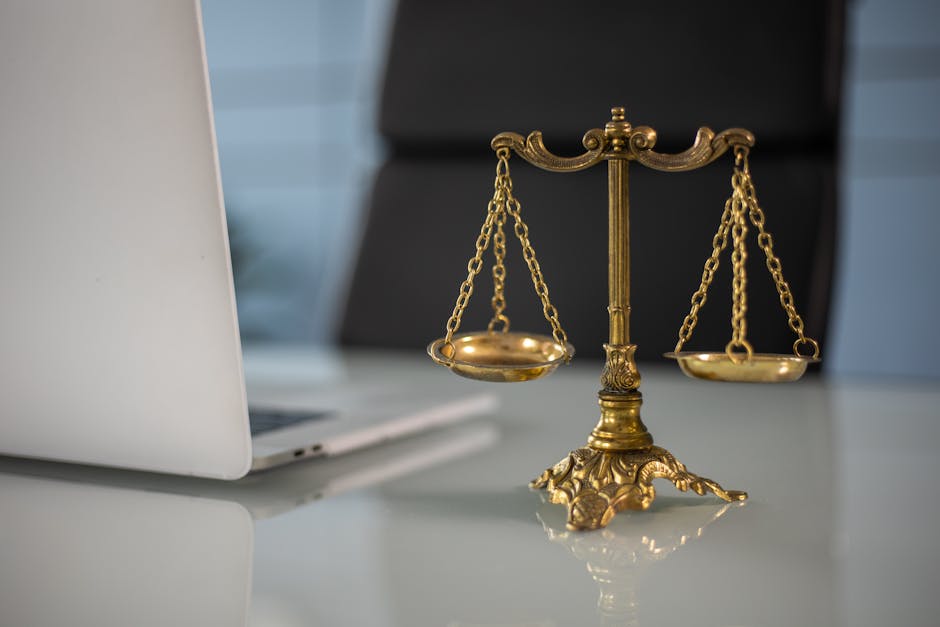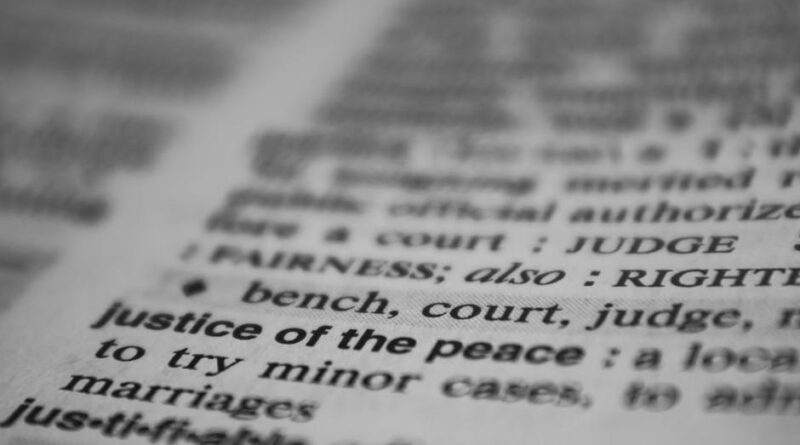Legal Terminology Every Court Attendee Should Know
Have you ever wondered what all those legal terms mean when you visit a courtroom? You’re not alone! Understanding legal jargon can feel like learning a new language. But knowing these terms can help you feel more confident in court. Lets dive into some essential legal terminology that everyone should know.
Why Is Legal Terminology Important?

Legal terminology helps people understand court proceedings better. When you know the words being used, you can follow along more easily. You might also find it easier to share your thoughts or concerns with your lawyer. Plus, it can make the whole process less intimidating.
So, what should you know? Let’s break down some key terms that every court attendee should be familiar with.
What Is a Plaintiff?

The plaintiff is the person who brings a case to court. Think of them as the “complainant.” They believe that someone has wronged them and wants the court to help them. For example, if someone crashes into your car, you might be the plaintiff if you decide to sue for damages.
What Is a Defendant?

The defendant is the person being accused in a court case. This person responds to the plaintiff’s claims. In our car accident example, the driver who hit your car would be the defendant. They have the right to defend themselves against the allegations.
What Does ‘Burden of Proof’ Mean?

The burden of proof is a crucial concept. It refers to the responsibility of the plaintiff to prove their case. In simple terms, they must show enough evidence to convince the judge or jury that their claim is valid. If they can’t, the defendant may win by default.
What Are Damages?
Damages are the money a plaintiff may receive if they win their case. They represent compensation for losses or injuries. There are different types of damages:
- Compensatory Damages: These cover actual losses, like medical bills or property damage.
- Punitive Damages: These are meant to punish the defendant for very harmful behavior.
What Is a Settlement?
A settlement is an agreement between the plaintiff and defendant. Instead of going to trial, both parties agree on a resolution. Settlements can save time and money. For example, a plaintiff might agree to receive a specific amount of money to resolve the issue without a court battle.
What Is a Subpoena?
A subpoena is a legal document that orders a person to appear in court or produce evidence. If you’re asked to testify or bring documents, you may receive a subpoena. Ignoring it can have serious consequences, including fines or legal penalties.
What Is an Affidavit?
An affidavit is a written statement confirmed by oath. it’s often used as evidence in court. Imagine a witness writing down what they saw and signing it under oath. This document can help support one side of a case.
What Does ‘Verdict’ Mean?
The verdict is the decision made by a judge or jury at the end of a trial. It determines the outcome of the case. If the jury believes the plaintiff has proven their case, they may issue a verdict in favor of the plaintiff. If they don’t, the verdict goes to the defendant.
What Is an Appeal?
An appeal is when one party asks a higher court to review a decision made by a lower court. If you think the judge made a mistake, you can file an appeal. This doesnt mean the case is retried; instead, the appellate court looks at whether the law was applied correctly.
What Is a Motion?
A motion is a formal request made to the court. For example, a lawyer might file a motion to dismiss the case if they believe there is not enough evidence. The judge will then decide whether to grant or deny the motion.
What Are Court Rules?
Court rules are guidelines that dictate how cases are handled. They cover everything from how to file documents to how to conduct trials. Each court may have its own set of rules. Understanding these can help you navigate the legal system more effectively.
What Are Legal Costs?
Legal costs are the expenses associated with going to court. They can include:
- Filing fees
- Attorney fees
- Costs for expert witnesses
Being aware of these costs can help you budget for your case. You might want to discuss fees and expenses with your lawyer upfront.
What Is the Role of a Judge?
The judge is the person in charge of the courtroom. They ensure the trial runs smoothly and fairly. The judge makes decisions on the law and interprets legal rules. They also decide what evidence can be presented.
What Is a Jury?
A jury is a group of people selected to hear a case and make a decision. In many cases, juries determine the facts and verdict. If youve ever seen a courtroom drama, youve likely seen jurors deliberating. They discuss the evidence presented and try to reach a consensus.
What Are Rights in Court?
Every person has rights in court. These include the right to a fair trial and the right to legal representation. Understanding your rights can empower you in legal situations. For more on this, check out the American Bar Associations guide on [Your Legal Rights](https://www.americanbar.org/groups/public_education/resources/law_related_education_network/how_courts_work/).
How Can You Prepare for Court?
Being prepared can help reduce anxiety. Here are some tips:
- Know the basics: Familiarize yourself with the legal terms we’ve discussed.
- Talk to your lawyer: Ask questions about what to expect.
- Dress appropriately: Court is a formal setting. Dress smartly to show respect.
Preparation can make a significant difference. The more you know, the more confident youll feel.
Are There Common Misconceptions?
Yes, there are several misconceptions about court proceedings. Here are a couple to keep in mind:
- Many people believe that all cases go to trial. However, most are settled before reaching the courtroom.
- Some think that lawyers always win cases, but the outcome depends on various factors, including the evidence.
What Are Some Final Takeaways?
Understanding legal terminology is essential for anyone attending court. It can help you feel more in control and informed. Remember these key points:
- Know the roles: Understand who the plaintiff, defendant, and judge are.
- Learn the terms: Familiarize yourself with important terms like damages, verdict, and appeal.
- Prepare yourself: Talk to your lawyer and dress appropriately.
By knowing these terms and concepts, youll be better equipped to handle your time in court. Legal proceedings can be complex, but you don’t have to feel overwhelmed. With a bit of knowledge, you can navigate the legal system with confidence!
For more insights on legal matters, check out our related post on [Understanding Your Rights in Court](https://www.yourwebsite.com/understanding-rights).



